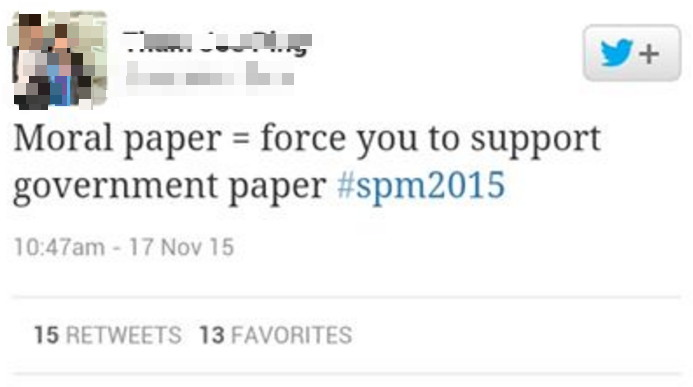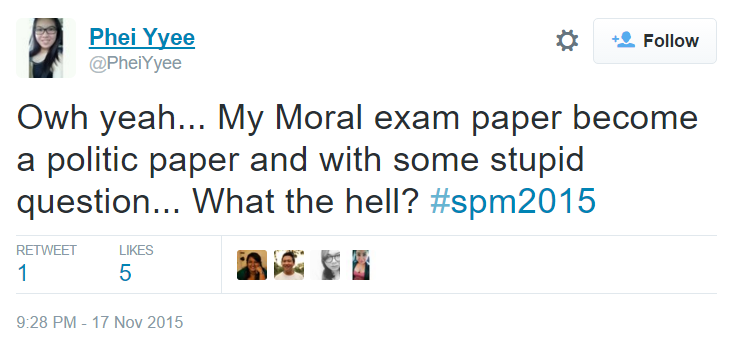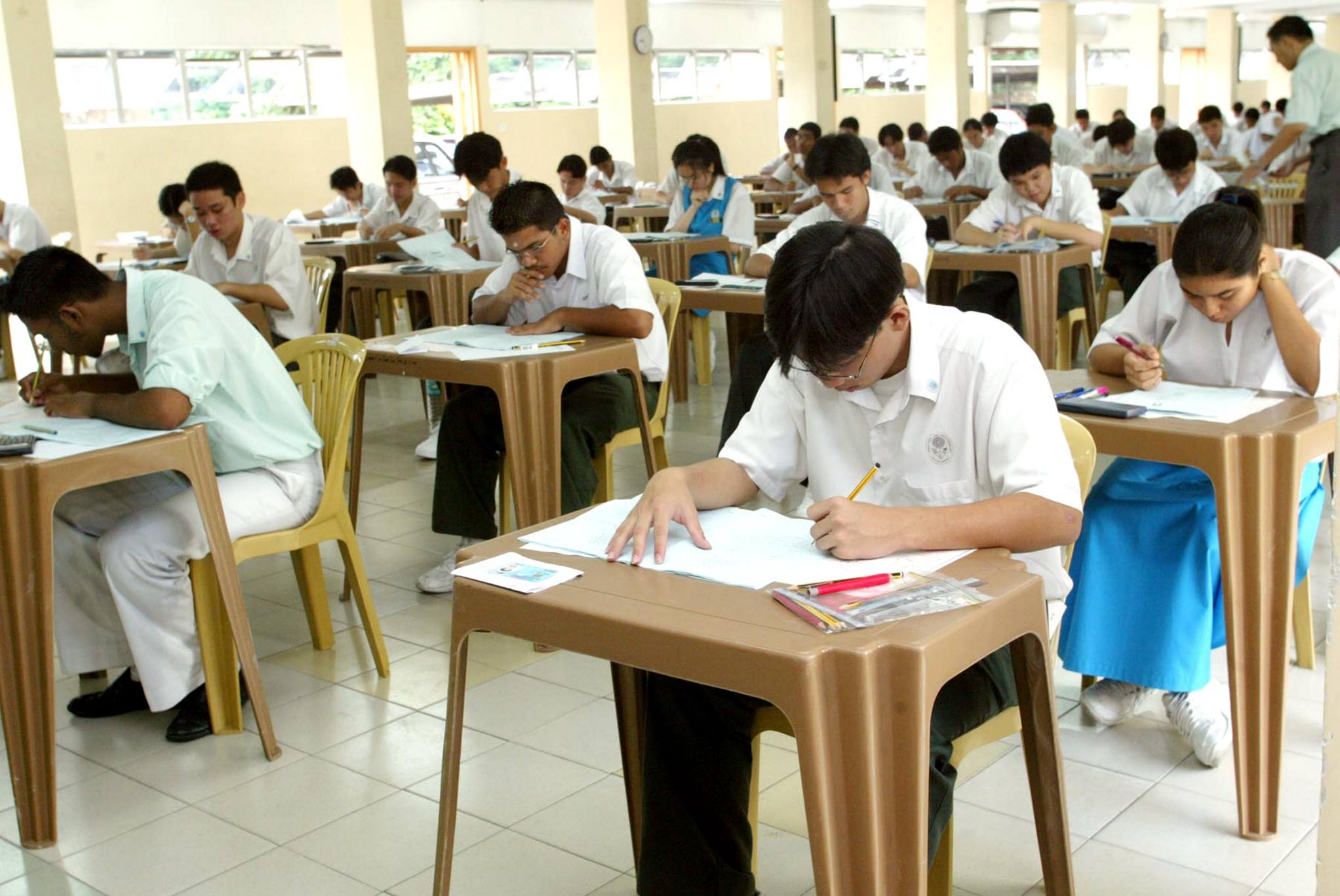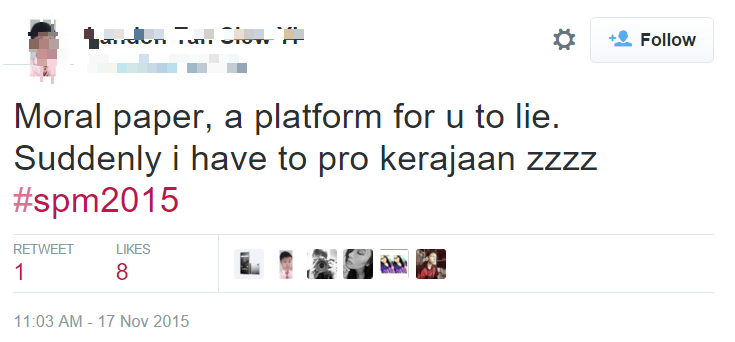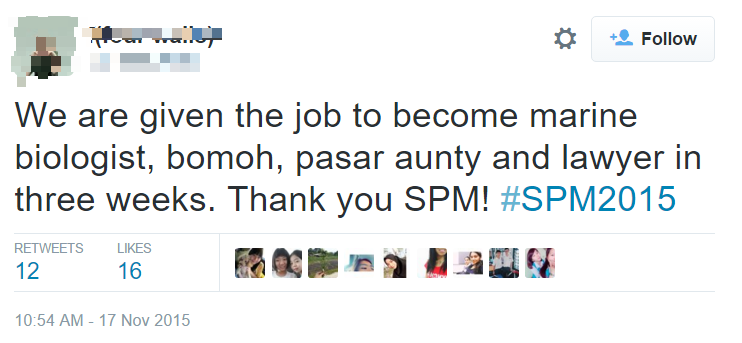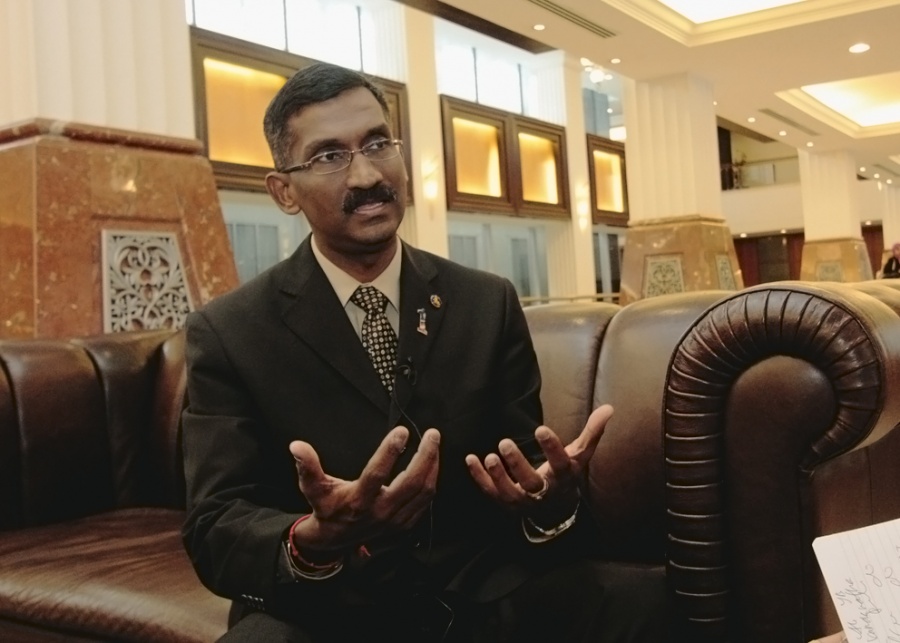Students Forced To Answer Political Propaganda-Like Questions In SPM Moral Exam
An attempt to influence the thinking of the students?
The national SPM (Sijil Pelajaran Malaysia) examinations, which are currently underway, have now raised eyebrows on social media regarding questions in the Moral Education paper alleged to be playing partisan politics, Malaysiakini reported on 19 November
An SPM candidate complained to Malaysiakini that the Government appeared to be trying to "brainwash" students through the Moral Education paper and indoctrinate them so that they would not participate in "political activities".
Recalling the question from memory, the student told Malaysiakini that candidates for the Moral paper were asked to answer questions based on a notice and a picture.
The notice states that civil servants are not allowed to participate in anti-government protests; the picture is of two students speaking to each other. Student A is putting up a poster promoting an anti-government rally, saying that he would receive RM100 after he finishes putting up the posters. Student B advises Student A against doing so.
A student named Shankar Chandrasegaran, who sat for the paper two days ago, told the Malay Mail Online that he believes many students will "believe that the government is trying to make sure that the young generation don't oppose the government"
Another student who asked only to be identified as Anna said she too was shocked when she saw the question, as she felt it was too personal and inappropriate for a national-level examination for school leavers.
“I think everyone is entitled to their own opinion, so by asking these strange questions in the exam, you cannot weigh the situation in the correct perspective because you know what the expected answer is. So why bother asking these questions when students would obviously have to provide them with the most ‘morally’ related answers and basically agree with whatever it is?” she posed.
Asked how she answered, Anna said she chose what she thought the examiners would accept as the most “correct” response, even though she believed the answer to be subjective.
The 17-year-old said her mother was unsurprised when she told her about the Moral examination question, adding that she felt a little consoled when she was told “there’s no win-win situation” in that predicament.
So what were the questions?
(a) Why students should not participate in anti-government rallies?
(b) How should schools prevent students from participating in anti-government rallies?
(c) We should support Student B's stance. Why?
Both Malaysiakini and Malay Mail Online reported on the same issue via students that such questions were asked in this year's SPM Moral Education paper.
Meanwhile, 6 university student groups, while issuing a joint statement, said the examination paper also contained another 'absurd' question, which asked candidates what were the positive effects of queuing up to collect water during a water supply cut.
“This (water cut) is something that should not befall on the rakyat in the first place, and yet the examination question forces students to find the a positive meaning behind it. It the Moral Education exam meant to test the ability of the students to recognise a blessing in disguise?” they asked.
The groups said the question was an attempt to influence the thinking of the students and absolve the government of incompetence in providing a reliable water supply so that students would not pursue the root causes of the problem and not condemn the government's poor governance. Instead, it forced students to adopt the question's unreasonable proposition and endorse it in the examination.
“The ruling government should not extend its claws into examination questions of secondary school students, to the extent of raising the government's policies to become a moral standard,” they added.
The student groups said putting a loaded question on not participating in anti-government rallies was an affront to efforts to foster independent and critical thinking amongst the students and that the question vilified civil society groups as anti-government, which was inappropriate, Malaysiakini reported
The six student groups were the UM Association of New Youth, Gabungan Mahasiswa UKM, UKM Student Unity Front, UTM Chinese Student Council, USM Student Progressive Front, and UUM Student Progressive Front.
“The student groups urge that public take this matter seriously and condemn the Examination Syndicate for not setting the questions properly, to put pressure on the syndicate, and to hold the syndicate accountable for turning the examination into a propaganda tool,” they said.
They urged the Examination Syndicate to respond to this issue, and apologise to the examination candidates. The six student groups said moral education was meant to inculcate students with good virtues, but this examination question forced students to agree with the government before attempting to answer the question.
This meant the paper had clearly become a tool for government propaganda, and therefore, deviated far from the purpose of the subject.
While the Malay Mail Online said it had contacted the Education Ministry for comment, Deputy Education Minister P Kamalanathan reportedly said he would look into the matter and issue a statement
Last year in November, there were reports that our education system was being used to propagate certain political agenda. We at SAYS took a look at four cases that had happened over the years:

